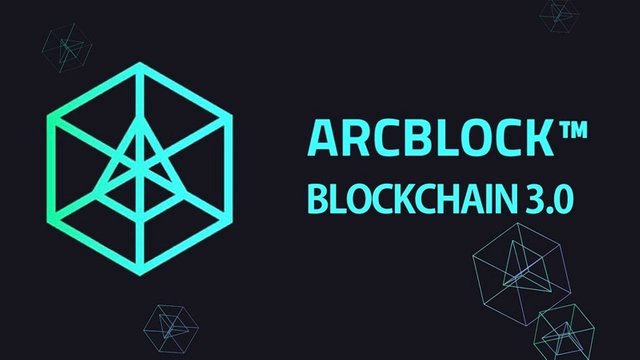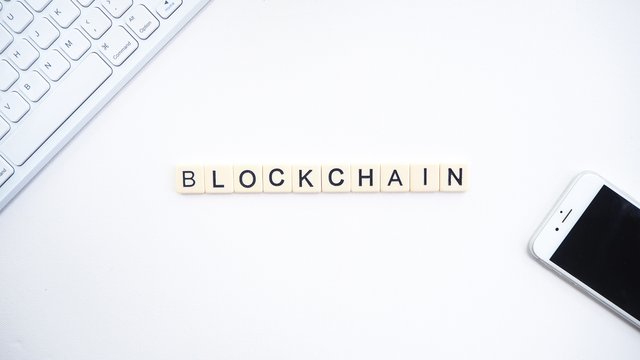
As a developer, or someone who wishes to bring their company on to the blockchain, getting started with platforms like Ethereum can be difficult if you don’t know where to start and don’t know how to code. Arcblock.io is a new service on the market which aims to make the creation of decentralized apps, or dapps, easier for those just entering the world of blockchain technology.
ArcBlock's Background
ArcBlock was founded in Bellevue, Washington by Robert Mao in 2017. Besides just creating the project, Mao has remained on as CEO of the company. The project currently has 18 employees and they work hard to ensure that bringing a dapp to market is as easy as possible for their customers. The aim of Arcblock isn’t to re-invent blockchain technology, but rather to focus on connecting users to existing technology.
ArcBlock was built as sort of a rival blockchain to Ethereum, however, like layering apps, has evolved to function on top of other blockchains. What this means is that you can build your dapp on the ArcBlock blockchain and then use the OCAP (Open Chain Access Protocol) to choose to run your dapp on the Ethereum or Tezos Blockchain. The Ethereum blockchain is unique because dapps on the chain must be coded in a specific Solidity coding language which is difficult to learn. OCAP is basically a translation system, and thus allows any app built on ArcBlock to be translated to run on any other blockchain dapp platform the user desires. So even if you don’t know Solidity, you can now create a dapp which runs on the Ethereum blockchain.
ArcBlock is built with the user in mind, and the employees at ArcBlock focus on having an easy to use interface (which isn’t necessarily the case with other blockchain technologies). It is also a blockchain built to be fully compatible with numerous different cloud functionalities which could make a big impact as the world slowly heads toward building more on cloud-based services.
The combination of increased simplicity, the OCAP, and the cloud connectivity, has led to people referring to ArcBlock as “blockchain 3.0.” This is in reference to referring to Bitcoin as blockchain (1.0) and Ethereum as blockchain 2.0. And although it hasn’t been widely adapted just yet, the technology itself is only a couple years old, and with time it is likely there will be more of a necessity for it, especially as blockchain technology begins to take hold and those who have very little coding experience need to learn to use it.
Blocklets
Perhaps the coolest feature of ArcBlock is something known as Blocklets. Blocklets are different upgrades or add-ons you can easily download to suit your development needs. What some Blocklets do, is allow apps on the ArcBlock blockchain to be coded in any language. This opens doors for a number of coders who previously would have to learn additional coding languages in order to use blockchain technology. Thus, not only can you use OCAP to translate your app onto the Ethereum blockchain, but you can additionally start from any coding language that you desire.
Blocklets also allow the development of dapps for both on chain and off chain functionality which may not seem like a big deal, but this allows developers to have the best performance for their dapps while spending the least amount of money. This makes it easier for smaller companies to move their business to the blockchain as there are less costs associated.
There are three different core Blocklets, all of which can be found on ArcBlock’s Blocklet market place. They are Blockchain Manager, DID (Connect for Decentralized Identity), and AWS QLDB Manager. There are a number of other Blocklets of course, but these are the ones that most companies find that they need. Once downloaded, each user will have a list of Blocklets available to their account. Additionally, they will be able to start, stop, restart, and delete these add-ons as they need. The basic use for Blocklets is allowing companies who may not be very technologically savvy to run their own dapps without the interference of the ArcBlock staff (which are there to help if you need them). This keeps the platform as decentralized as possible without requiring a largely technological background.
ABT Token
Just like any other dapp platform on the market, ArcBlock requires its own currency in order to run. The token used on the ArcBlock platform is called ABT which refers to ArcBlock Token.
ABT was released to the public during an ICO which ended on February 3rd, 2018, after raising the desired $45 million dollars. As of the writing of this article, the token has a market cap of $7,077,783, with a circulating supply of just over 98 million coins. ArcBlock can be purchased on a number of exchanges, most notably Huobi Global, OKEx, CoinBene, and Bibox.
Users can easily download and install as wallet to hold this ABT through the ArcBlock platform. There is also an easy way to download an ABT node directly to your laptop or device, and the website will walk you through the process step by step. If your company is a high production company, it’s recommended to set up a node using the AWS (Amazon Web Service) integration Blocklet.
Partnership with PoulSAT
In November 2020, ArcBlock announced a partnership with Maryland based internet and communications company, PoulSAT. This partnership will allow ArcBlock to bring blockchain based development services to numerous countries on the continent of Africa. Because of the ease of functionality found while using ArcBlock (and the low cost as mentioned above) a number of African businesses have already begun to implement blockchain uses in their businesses. And unlike other blockchains which lock vendors in, these African businesses are able to purchase the services then run them on any platform they would like (or that is available to them).
This isn’t the first time African countries have been introduced to blockchain technology. In fact, the country of Nigeria has recently announced their plan to try and become one of the worlds blockchain leaders. This has high implications for the continent as a whole as they have long lacked behind the pace of world development especially in the business perspective. And blockchain could be the technology to quickly propel them to the top.
Partnership with MyData Global
Besides expanding to bring their technology to Africa, in December 2020, ArcBlock also partnered with Helsinki based MyData Global, which is a major nonprofit player in the rising DEFI marketplace.
MyData Global is a collection of over 100 companies from 50 different countries who are committed to the idea of decentralized identity and returning the control of user data to the user. This merges very well with ArcBlock’s method of decentralized development available for each user who uses their platform. Companies who deal with loads of customer data will especially benefit from this partnership, as managing customer data can now be done in a decentralized manner. Therefore freeing the companies from the burden of managing customer data, and instead returning the power to the user. Hopefully this partnership will be a major step in the world wide development of decentralized identities, which takes power away from governments and returns it to the people.
Overall, although ArcBlock only launched three years ago, they are quickly making moves and becoming a large player in the blockchain market. Not only are they quickly gaining on other companies with similar functionalities such as Cosmos and Tezos, but they are doing so in a simplified manner, thus allowing them to bring companies with little technological experience onto the blockchain. And they do all this while keeping the people in mind, working towards total decentralization, and allowing individuals to retain the rights to their own data.
This article was brought to you by the Provably Fair Bitcoin Gambling on MintDice.com. Originally posted on the MintDice Blog.


We are very closely monitoring blockchain tech as evolutions come along. Stop by on MintDice and say hello to us!
Downvoting a post can decrease pending rewards and make it less visible. Common reasons:
Submit